If your car shakes when you start it, don’t worry – you’re not alone. This is a common problem that many drivers experience at some point or another. In most cases, there’s nothing to worry about; the shaking will stop once the engine has warmed up. However, in some cases, there may be an underlying problem that needs to be addressed. This blog post will discuss the causes of car shaking when starting and what you can do about it!
What Trigger Car Shaking On Cold Start?
Low Fuel In The Canister
One of the most common causes for car shaking on cold start is low fuel in the canister. When the engine does not have enough fuel to supply its needs, it will shake and vibrate due to a lack of fuel pressure. This is because there are not enough combustible molecules in the tank to create a proper combustion reaction resulting in poor performance.
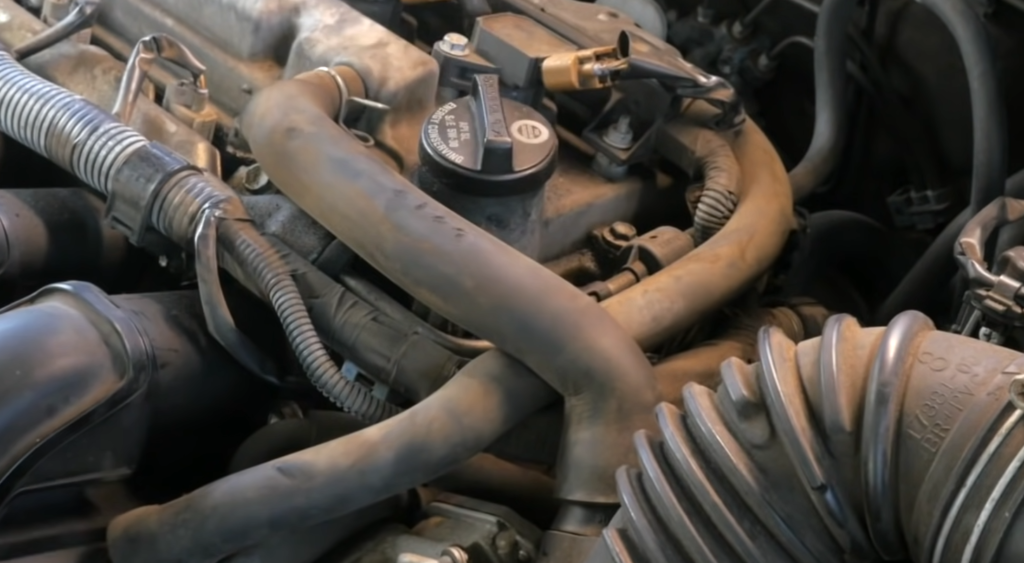
Faulty Spark Plugs
Another potential cause of car shaking on cold start is faulty spark plugs. If one or more of your spark plugs are damaged, they may be misfiring, which can lead to an uneven and unbalanced combustion process that creates vibrations throughout the engine. To fix this issue, you need to replace any faulty spark plugs with new ones as soon as possible.
Old or Dirty Oil
Old or dirty oil can also be a cause for car shaking on cold starts. Over time, the oil in your vehicle’s engine can become contaminated and break down, reducing its ability to lubricate essential components of the engine. This can lead to increased friction between these components which will create vibrations throughout the entire system resulting in an unstable ride. To fix this issue, you need to get an oil change done as soon as possible.
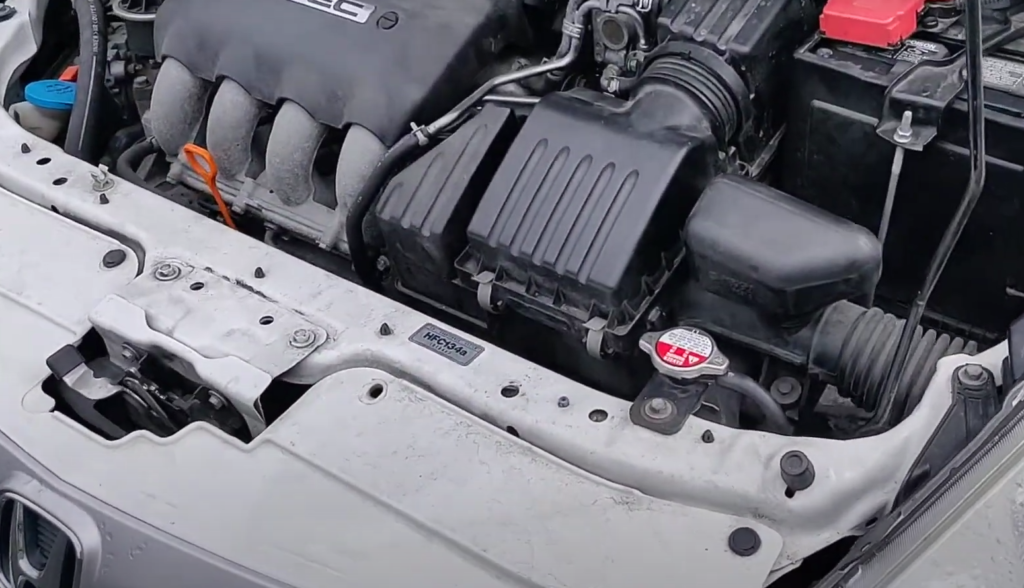
Loose Components
Loose components within the engine can also be a cause for car shaking on cold starts. If any of the internal parts of the engine are not fitted properly, they will vibrate and cause instability when the engine is running. To fix this issue, you need to inspect all components of your engine and make sure they are firmly in place before taking your vehicle out on a drive. Fixing a car shaking on a cold start can be an easy job if you identify the root cause correctly. Make sure to check for any fuel-related issues, faulty spark plugs, old or dirty oil, or loose components that may be causing the problem.
Use Bad Fuel
Using bad fuel can also cause the car to shake on a cold start. If the fuel you are using is not of good quality or has been contaminated, it may not be combusting properly and leading to uneven engine performance. To fix this issue, you need to switch over to a better-quality fuel source as soon as possible.
A Discharged Car Battery
A discharged car battery can also cause the car to shake on a cold start. If your vehicle’s battery is not fully charged, it may be unable to supply enough power to get the engine started and running smoothly. To fix this issue, you need to recharge or replace your battery as soon as possible. By diagnosing the root cause correctly, you can easily fix any issues causing your car to shake on a cold start without having to spend too much time and money on repairs. However, if you are still unsure of what could be causing the problem, it is always advisable to take your car in for a professional inspection at an auto repair shop.
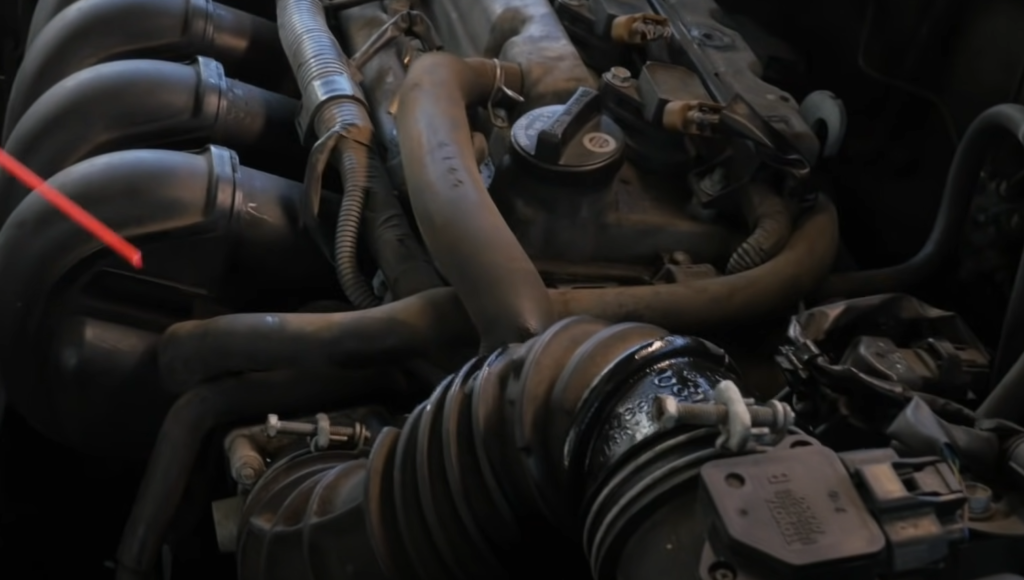
A Bad Fuel Pump
A bad fuel pump can also be a cause of car shaking on cold starts. If the fuel pump is not working properly, it may be unable to supply enough fuel pressure to the engine resulting in poor performance and vibrations. To fix this issue, you need to get your fuel pump replaced as soon as possible by a professional technician.
Worn-Out Timing Belt Or Timing Chain
Another potential cause of car shaking on cold starts is a worn-out timing belt or timing chain. If either of these components is not in good condition, they may be unable to properly coordinate the movement of the valves and pistons in the engine which can lead to an uneven and unbalanced combustion process that creates vibrations throughout the engine. To fix this issue, you need to replace any faulty timing belts or chains with new ones as soon as possible.
Problems With ECU
Problems with the engine control unit (ECU) can also be a source of the car shaking on cold start. If the ECU is not working properly, it may be unable to accurately regulate and monitor the various parts and systems in the engine resulting in poor performance and vibrations. To fix this issue, you need to get your ECU inspected by a professional technician as soon as possible.
Bad Engine Mounts
Bad engine mounts can also be a cause of car shaking on cold starts. If the engine mounts are not in good condition, they may be unable to absorb and dampen vibrations from the engine resulting in an unstable ride. To fix this issue, you need to replace any faulty or damaged engine mounts with new ones as soon as possible.
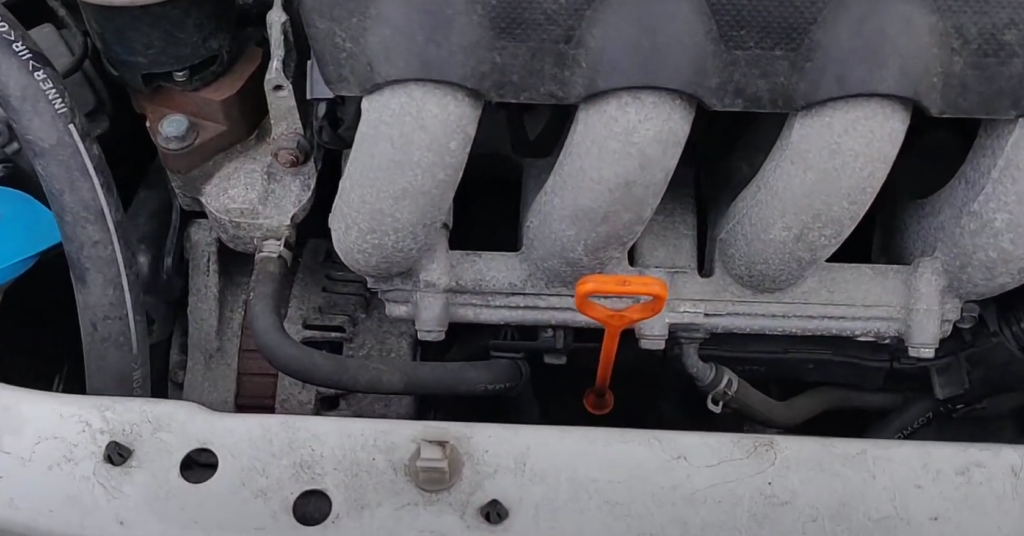
Faulty Idle Speed Sensor
A faulty idle speed sensor can also be responsible for car shaking on cold starts. If the idle speed sensor is not working properly, it may be unable to detect any changes in engine RPM resulting in a rough and uneven running of the engine. To fix this issue, you need to get your idle speed sensor inspected and replaced with a new one by a professional technician as soon as possible.
Other Reasons
There could be other reasons why your car is shaking on a cold start such as faulty spark plugs, air or fuel filters that need to be changed, and a vacuum leak. If you are still not able to identify the cause of the issue, it is best to take your car to an auto repair shop for professional diagnosis and repairs [1].
Does Cold Start Harm The Car Engine?
Generally speaking, a cold start is not harmful to your car’s engine. Most modern cars are designed with components that can handle the stress of starting up in colder temperatures. However, there are still some potential issues that can arise from frequent cold starts. One common problem associated with cold starts is increased wear and tear on the battery and starter motor.
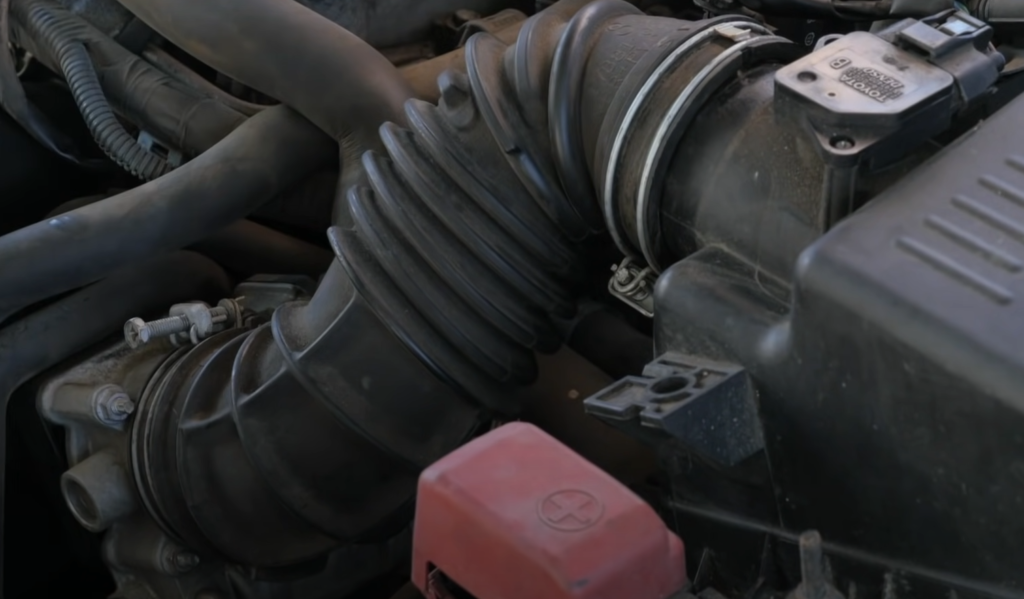
Starting an engine requires a lot of power which can put a strain on older or worn-out car batteries or starters. This strain can result in premature failure if the system isn’t regularly maintained and inspected for signs of wear. Another issue that may come up is incomplete combustion, resulting in higher emissions levels during startup.
As the engine warms up, the fuel and air mixture should become more efficient, resulting in fewer emissions. If this doesn’t happen, it may be an indication of a faulty component such as a spark plug or oxygen sensor.
Finally, cold starts can also lead to decreased engine performance due to thicker oil viscosity at lower temperatures. Thick oil can make it difficult for the engine components to move freely, resulting in reduced responsiveness and poorer fuel economy. To minimize these issues, always ensure that your vehicle is well maintained with regular oil changes and tune-ups when necessary.
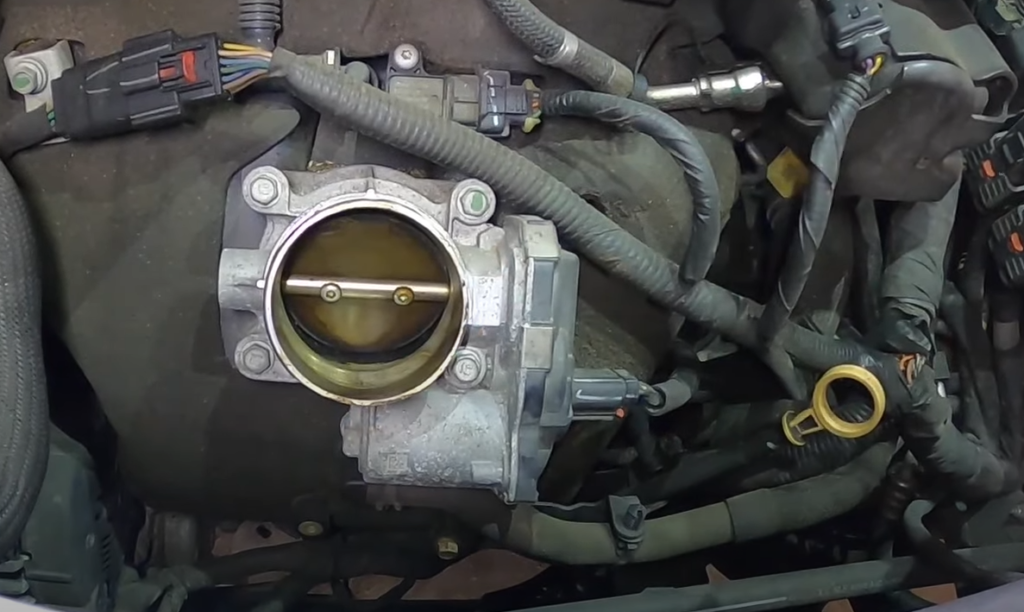
In conclusion, cold starting your car isn’t necessarily bad for its engine if done with proper care and maintenance. However, ignoring regular maintenance routines can lead to premature wear on parts like the battery and starter motor, as well as higher emissions levels and decreased performance.
How To Protect The Engine From Damage During A Cold Start?
- Use the right grade of oil: Using an engine oil with a viscosity rating that’s suitable for cold-weather starting will help protect your engine during a cold start.
- Avoid excessive idling: Excessive idle time puts additional strain on an already strained engine, so limit it when possible, especially in the winter months.
- Replace spark plugs regularly: Spark plug fouling is one of the most common causes of hard starts and misfires during cold weather and can place extra stress on the starter, battery, and other components during startup. Replacing plugs regularly will help ensure smooth starts even in colder temperatures.
- Install an engine block heater: An engine block heater will help warm up the engine oil and reduce wear since it’s already at operating temperature when you start the car.
- Use a fuel additive: Fuel additives designed for cold weather use can help protect your engine from potential damage due to condensation buildup in the fuel lines or tank.
- Keep the battery charged: A fully charged battery is essential for a successful cold start, so make sure your battery is properly maintained and checked regularly during the winter months.
- Check for leaks: Leaks in any part of your vehicle’s system can lead to extra strain on other components during startup, so check hoses and gaskets regularly for signs of wear or failure. Doing this will help ensure that your cold start is successful and your engine stays in good condition.
- Make sure the air filter is clean: A clogged air filter can reduce airflow to the engine, which puts unnecessary strain on the starter motor and other components during a cold start. Ensuring your air filter is always clean will help prevent this problem and keep your engine running smoothly.
- Keep up with regular maintenance: Regularly scheduled oil changes and other standard maintenance procedures are essential for keeping your engine in top shape, so make sure you’re following your vehicle manufacturer’s recommended service schedule at all times. Doing this will help ensure that your engine is ready for whatever weather Mother Nature has in store.
Finally, if your vehicle has been sitting for an extended period, it’s always a good idea to have it serviced before attempting to start the engine. This will help ensure that all components are working correctly and reduce strain on the starter motor during cold weather starting. Taking these simple precautions can help protect your engine from potential damage due to cold-weather starting. With proper care and maintenance, you can enjoy reliable starts even during winter’s chilliest days [3].
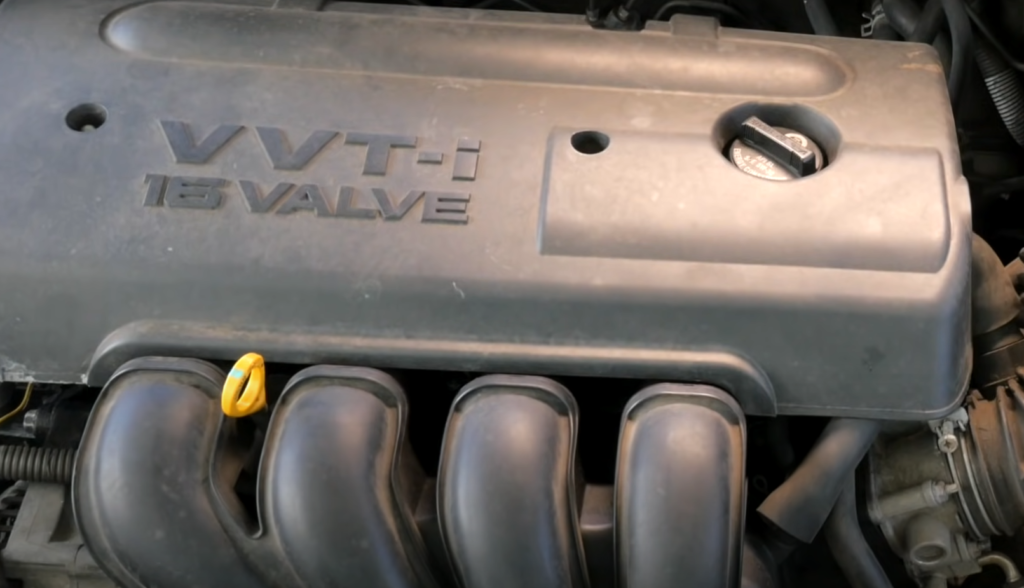
Shaky Beginnings: Addressing Car Vibrations during Start-Up and Resolving Smoothly
Experiencing unsettling shakes when starting your car, only for it to run fine afterward? Navigate the comprehensive table below to uncover potential causes, recommended actions, and preventive measures to ensure a seamless and trouble-free driving experience.
| Possible Cause | Symptoms | Actions to Take | Preventive Measures |
|---|---|---|---|
| 1. Worn Engine Mounts | Shaking during start-up, reduced engine stability | Inspect and replace worn engine mounts | Regularly check and replace engine mounts as part of routine maintenance |
| 2. Faulty Starter Motor | Intermittent starting issues, vibration during ignition | Check and replace the starter motor if necessary | Follow recommended starter motor maintenance and inspection schedules |
| 3. Ignition System Problems | Engine misfires, rough start-up | Inspect and replace spark plugs, ignition coils, and wires | Regularly check and maintain the ignition system components |
| 4. Fuel Injection Issues | Uneven fuel delivery, rough start | Clean or replace fuel injectors, check fuel pressure | Use quality fuel and perform regular fuel system maintenance |
Explanation of the table:
- Worn Engine Mounts: If your car shakes during start-up with reduced engine stability, inspect and replace worn engine mounts. Regularly check and replace engine mounts as part of routine maintenance.
- Faulty Starter Motor: Experience intermittent starting issues and vibration during ignition? Check and replace the starter motor if necessary, and follow recommended maintenance and inspection schedules for the starter motor.
- Ignition System Problems: Engine misfires and rough start-up may indicate ignition system problems. Inspect and replace spark plugs, ignition coils, and wires, and regularly check and maintain the ignition system components.
- Fuel Injection Issues: If your car exhibits uneven fuel delivery and a rough start, clean or replace fuel injectors and check fuel pressure. Use quality fuel and perform regular fuel system maintenance.
FAQ
How long do car batteries last?
The lifespan of a car battery depends on several factors, such as how often the car is used, what type of battery it has, and how well the car is maintained. Generally speaking, most modern automotive batteries have an average life expectancy of about 4-6 years. However, if the vehicle is rarely used or well-maintained, it could last up to 8 years or longer.
In some cases, your vehicle’s manufacturer may recommend replacing its battery after only 3-4 years. It’s important to refer to your owner’s manual for specific maintenance guidelines for your make and model of car. Additionally, regular checkups with a qualified auto technician can help you stay on top of any potential issues that could shorten the life of your car’s battery.
What should I do to extend the life of my car battery?
There are a few steps you can take to extend the life of your car battery:
- Park in a shaded area when possible. This will help protect your battery from excessive heat, which can cause it to overheat and shorten its lifespan.
- Keep your vehicle well-maintained by regularly checking fluids, tire pressure, and other vital components.
- Use an LED flashlight instead of your headlights whenever possible; LED lights draw much less power than traditional bulbs, which can help save on energy usage and reduce strain on your battery.
- Be sure to drive long enough that the battery gets fully charged. This will help extend its life by ensuring that the cells are regularly replenished with enough power to keep them functioning properly.
- Consider investing in a maintenance-free battery, which usually lasts longer than regular batteries and doesn’t require frequent inspections or fluid topping off. Following these guidelines can help ensure that your car’s battery lasts as long as possible and avoid any potential issues down the line.
What is the difference between cold cranking amps (CCA) and reserve capacity?
Cold Cranking Amps (CCA) measure the number of amperes a car battery can deliver for 30 seconds at 0°F (-18°C). CCA is an important factor to consider when selecting a battery, as it indicates the level of power output and performance. Reserve capacity measures how long a car battery can last once the alternator fails or is removed from the vehicle. It is expressed in minutes and typically ranges from 45-90 minutes depending on the quality and size of the battery.
How to prolong battery life?
Prolonging battery life is possible with regular maintenance and care. To get the most out of your car’s battery, it’s important to keep it charged properly, avoid overcharging or discharging it and maintain a proper fluid level. Additionally, you should periodically clean corrosion from the terminals and make sure that your alternator is functioning properly. Taking preventive measures to help ensure that your vehicle is running efficiently can greatly improve the lifespan of your car battery. Finally, consider investing in a good-quality battery charger or jump starter to protect your car’s power source when not in use. This will help extend its life by preventing any unnecessary drain on the battery while stored away.
How long does a starter last?
The lifespan of a starter depends on how well it is maintained and the type of car it is installed in. Generally speaking, starters can last anywhere from 4 to 8 years depending on the vehicle’s usage and maintenance habits. On average, they usually need replacing after 80,000-100,000 miles. It’s important to keep an eye out for any signs that your car’s starter may be failing and have it looked at by a qualified auto technician as soon as possible if you notice any issues.
Why do tires wear out?
Tires wear out over time due to a variety of factors, including normal wear and tear, improper tire inflation or alignment, driving on rough roads, and excessive speed. Additionally, extreme temperatures can accelerate the breakdown of rubber compounds in your tires, causing them to become more prone to punctures and rips.
Why do motor mounts go bad?
Motor mounts go bad over time due to a variety of factors, such as vibration and heat. Over time, the rubber components that make up a motor mount can start to break down or become brittle from constant exposure to engine heat and vibrations. Additionally, metal components like bolts and brackets can corrode, leading to structural failure of the mount. Proper maintenance is key when it comes to prolonging the life of your motor mounts; this includes regularly inspecting them for any signs of wear and tear, replacing worn-out parts as necessary, and keeping your engine clean and free from dirt/debris. Taking preventive measures can help ensure that your vehicle’s motor mounts last longer.
Why is my car shaking as soon as I start it?
There are several potential causes for this issue. It could be an indication of a worn-out engine mount, faulty spark plugs or plug wires, or a loose belt. It’s also possible that your car may have an ignition misfire due to a weak spark, clogged fuel injectors, low compression, or inadequate fuel supply. To diagnose the problem, it’s best to have your vehicle inspected by an experienced auto technician so they can pinpoint the source of the shaking and recommend the appropriate repair.
How do I fix my car when it shakes at idle?
There are a few potential causes for why your car might be shaking at idle. If the cause is an engine mount that has worn out or broken, then it will need to be replaced. Other possible causes include faulty spark plugs or plug wires, clogged fuel injectors, low compression, inadequate fuel supply, and loose belts. To determine what’s causing the issue, it’s best to have your vehicle inspected by a qualified auto technician. They can pinpoint the source of the problem and recommend the appropriate repair.
Why is my car shaking after a cold start?
Cold temperatures can cause engine components to expand and contract differently than they would normally, resulting in a misfire or rough idle. This is usually accompanied by an unpleasant smell from the exhaust system. Other potential causes for this issue include faulty spark plugs, clogged fuel injectors, low compression, inadequate fuel supply, and loose belts. To diagnose the problem accurately and recommend the correct repair solution, it’s best to have your vehicle inspected by a qualified auto technician. They can help identify what’s causing the shaking after a cold start and advise on the best course of action.
Should I be worried if my car is shaking?
If your car is shaking, it’s best to have it inspected by an experienced auto technician as soon as poss. It could be a sign of an underlying issue such as worn-out engine mounts, faulty spark plugs or plug wires, low compression, or inadequate fuel supply. If left unchecked, these issues can lead to more serious problems down the line. Having your vehicle properly diagnosed and serviced will help ensure its safe operation and reliability if you notice any issues.
Is it OK to drive a car while shaking?
No, it is not safe to drive a car while shaking or vibrating as this can be an indication of an underlying issue that may cause further damage if left unchecked. It’s best to have your vehicle inspected by a qualified auto technician as soon as possible so they can diagnose the problem and recommend the appropriate repair solution. Driving a shaking car could put you at risk of an accident due to poor tread grip or other mechanical failures. Taking preventive measures now can help ensure that you and your passengers stay safe on the road.
Why does my car shake and then stop shaking?
This could be an indication of a faulty engine mount, worn-out spark plugs or plug wires, low compression, or inadequate fuel supply. It’s best to have your vehicle inspected by a qualified auto technician as soon as possible so they can diagnose the problem and recommend the appropriate repair solution. Taking preventive measures now can help ensure that this doesn’t become a recurring issue in the future. If left unchecked, these issues can lead to more serious problems down the line. Having your car serviced regularly and maintaining it well will keep it running safely and smoothly for many years to come.
What are 5 possible causes of a shaking vehicle?
- Faulty engine mounts
- Worn-out spark plugs or plug wires
- Clogged fuel injectors
- Low compression
- Inadequate fuel supply
To accurately diagnose the source of the problem, it’s best to have your vehicle inspected by an experienced auto technician so they can pinpoint the source of the shaking and recommend the appropriate repair.
Can bad spark plugs cause the car to shake?
Yes, bad spark plugs can cause the car to shake. Faulty spark plugs or plug wires can result in a misfire, causing the engine to vibrate or shake at idle and during acceleration. This is usually accompanied by an unpleasant smell from the exhaust system. To determine what’s causing the issue, it’s best to have your vehicle inspected by a qualified auto technician. They can pinpoint the source of the problem and recommend the appropriate repair.
Why does my car shake when starting but then runs fine? What should I do?
If your car shakes when starting but runs fine afterward, it may indicate a temporary issue during the ignition process. One common cause is misfiring, often attributed to faulty spark plugs, ignition coils, or fuel injectors. To address this, consider checking and replacing any worn-out components in the ignition system. If the problem persists, consulting a professional mechanic for a thorough diagnosis is recommended.
Are there other potential reasons for my car shaking during startup?
Yes, aside from ignition-related issues, other factors such as a weak battery, dirty fuel injectors, or a malfunctioning sensor could contribute to the initial shaking. A weak battery may result in insufficient power during startup, while dirty fuel injectors or sensor malfunctions can affect fuel delivery. Regular maintenance and diagnostic checks can help identify and address these issues.
Should I be concerned if my car only shakes briefly during startup?
While brief shaking during startup may not necessarily indicate a severe problem, it’s essential to address the underlying issue promptly to prevent further damage. Ignoring potential causes of the shaking, such as worn-out ignition components, could lead to more significant problems over time. Consider having your vehicle inspected by a qualified mechanic to ensure proper functionality and prevent future issues.
Can a DIY inspection and maintenance resolve the shaking issue during startup?
Some basic inspections, such as checking spark plugs for wear and cleaning fuel injectors, can be done by DIY enthusiasts. However, for a comprehensive diagnosis and accurate resolution, it is advisable to consult a professional mechanic. They have the expertise and tools to identify hidden issues and provide effective solutions, ensuring the long-term reliability of your vehicle.
Are there potential long-term consequences if the shaking issue is ignored?
If the shaking issue during startup is left unaddressed, it could lead to more severe problems over time. Ignoring ignition-related problems may result in decreased fuel efficiency, engine damage, or even a breakdown. To prevent long-term consequences and maintain the health of your vehicle, it is recommended to address any shaking issues promptly through professional inspection and maintenance.
What steps should I take if the car continues to shake during and after startup?
If the shaking persists or worsens, it is crucial to schedule a comprehensive inspection with a qualified mechanic. They can perform a thorough diagnosis to identify the root cause of the issue and recommend appropriate repairs. Ignoring persistent shaking can lead to further damage and compromise the overall performance and safety of your vehicle.
Useful Video: Diagnose and Fix Rough Car Idle – Main Causes For Shaking / Vibrating While at a Stop
Conclusion
Does the car shake when starting then run fine? Your vehicle’s engine may be having difficulty with either the spark plug, ignition coil, or distributor. Any one of these components can cause a car to shake when starting and then run fine. If your vehicle has this issue, it is important to have it checked out as soon as possible by an experienced mechanic who can diagnose and repair the problem. By addressing any potential issues right away, you can avoid more costly repairs in the future and keep your car running smoothly. With regular maintenance and timely repairs, you can ensure that your vehicle will serve you faithfully for many years to come.
References
- https://bryansgarage.com/car-shaking-on-cold-start/
- https://www.speedydrive.ae/blog/cold-start-how-it-impacts-the-engine-when-starting-the-car/
- https://www.idlesmart.com/post/tips-to-prevent-cold-starts-for-your-fleet

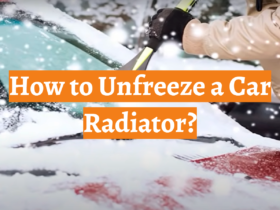
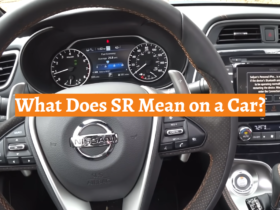


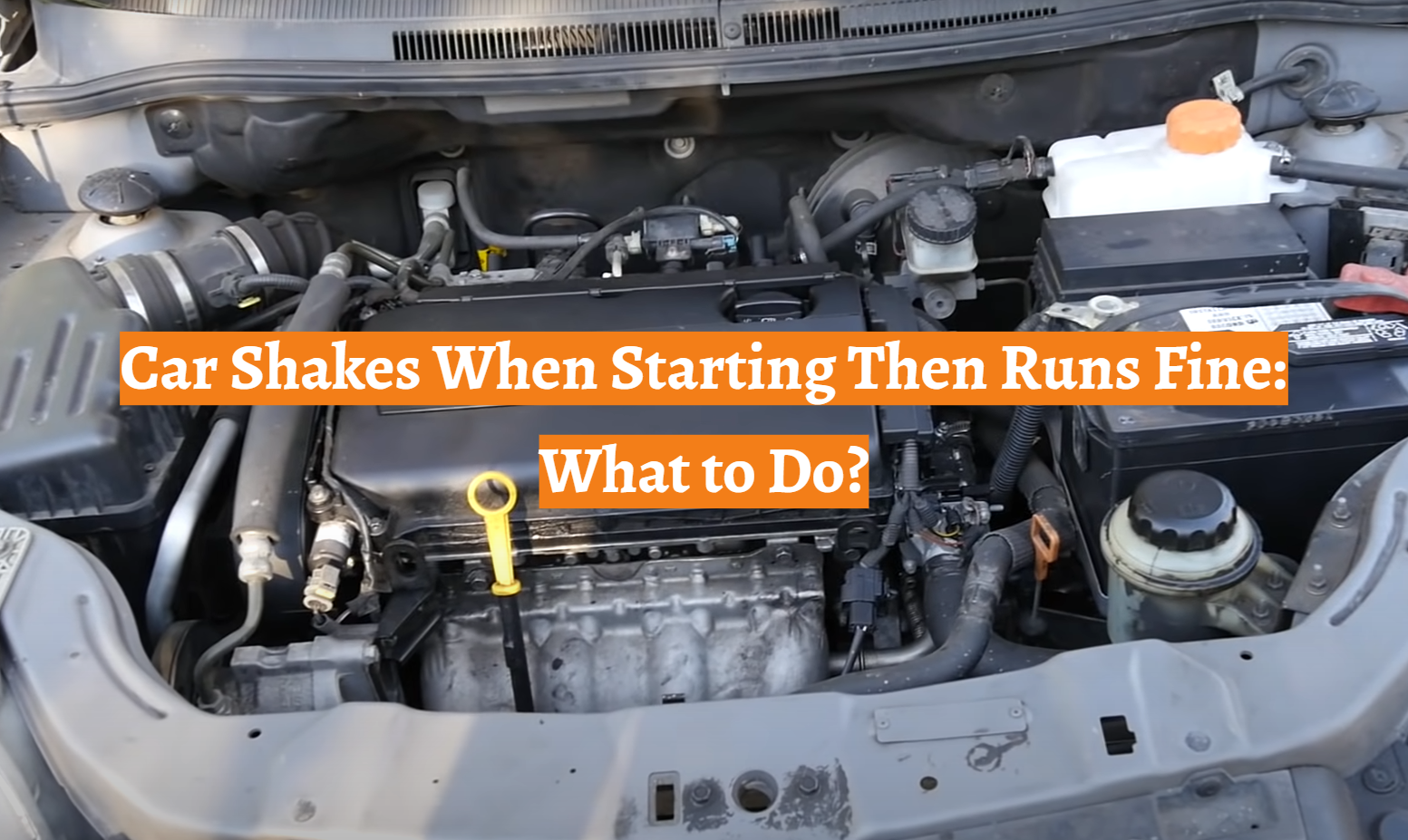

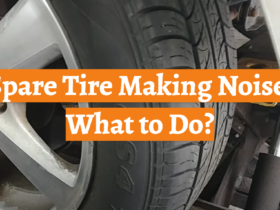

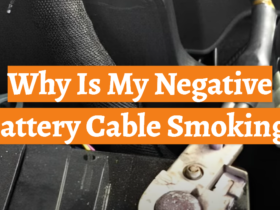
Leave a Review